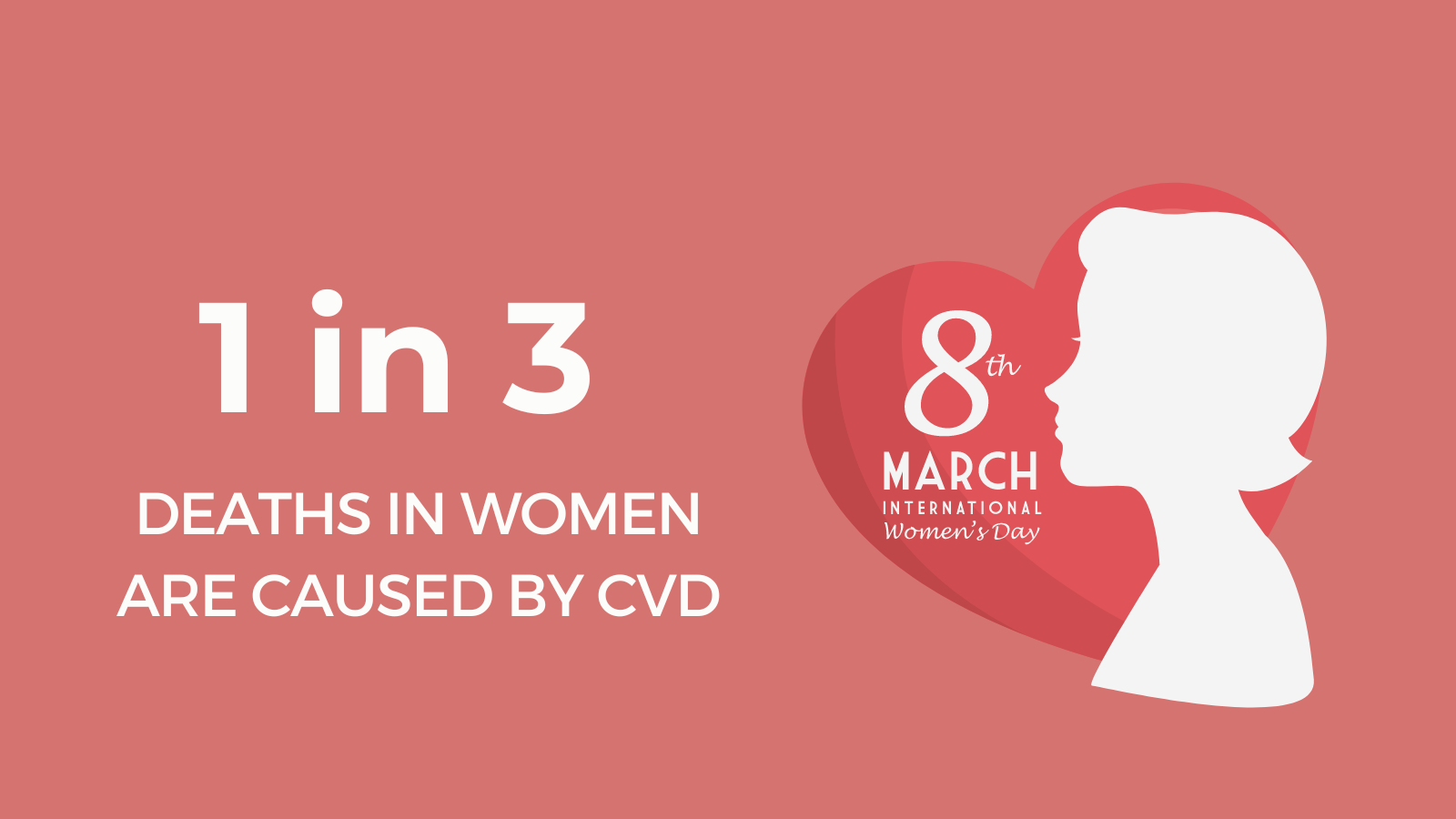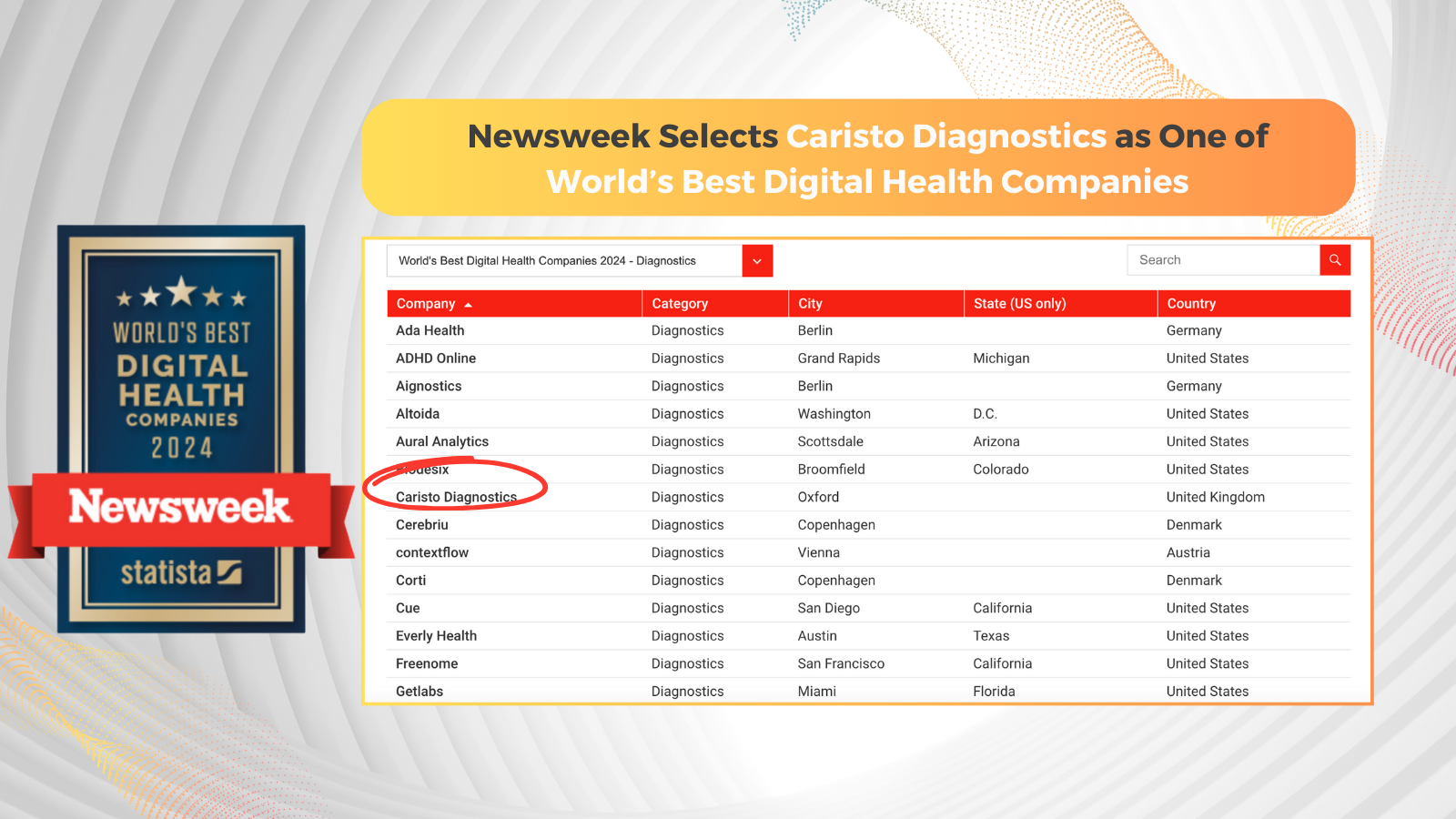Caristo’s CaRi-Heart® technology addresses the gender gap in understanding cardiovascular disease risk in women

Cardiovascular risk prediction models based on traditional risk factors underestimate risk in women – review article by European Atherosclerosis Society
On International Women’s Day, Caristo Diagnostics, a leading cardiac disease diagnostic company, responds to the ‘call to action’ raised by European Atherosclerosis Society (EAS) to improve prevention strategies for atherosclerotic cardiovascular disease in women. Caristo’s AI enabled CaRi-Heart® technology is the first-of-its-kind imaging tool that can predict sex-specific cardiac risk by analyzing routine cardiac CT scans.
Coronary artery disease (CAD) is one of the main causes of death in women worldwide. In the UK, 830,000 women are living with CAD and 88 women are admitted to the hospital every day because of a heart attack1. Research from EAS states that the symptoms of CAD in women are systematically underrecognized, frequently leading to delayed or missed diagnosis and contributing to undertreatment and less favourable outcomes for women with CAD.2
While both men and women share many common cardiovascular risk factors, the impact of these factors can vary between the sexes and may evolve over time due to sex-specific risks such as pregnancy-related conditions and menopause. Current cardiac risk assessment models often focus on a 10-year timeframe and tend to underestimate risk in women due to historical underdiagnosis of cardiovascular events in female patients. Even women known to have significant coronary artery disease (CAD) are frequently classified as lower risk. Since traditional prediction models rely heavily on past data, the underreporting of events in earlier studies results in a lower event rate, leading to an underestimation of risk in women.
“Symptoms of CAD may present differently in women than in men, leading to delayed or missed diagnosis. With CaRi-Heart® technology we can assess cardiovascular disease risk in a manner that is individualised for each patient’s sex and age, free from the potential bias of clinical perceptions.” comments Prof. Keith Channon, Chief Medical Officer, Caristo Diagnostics.
CaRi-Heart technology from Caristo aims to close the gender gap in heart care by calculating a personalized, age and sex specific risk of a fatal cardiac event. This is achieved by quantifying a vital but hidden risk factor – coronary inflammation – using its proprietary biomarker, the Fat Attenuation Index (FAI) Score. New data from the ORFAN study presented at the AHA Late Breaking Science session demonstrated the clinical efficacy of CaRi-Heart® AI’s algorithm on a balanced study cohort of more than three thousand subjects, with 47% female and 53% male.3
“Traditionally, development of diagnostic techniques and treatments for cardiovascular disease has been based on research conducted primarily on men. When developing CaRi-Heart technology, we ensured that we included a balance in male and female populations” added Prof. Channon.
A high FAI-Score is associated with a 20-fold increased risk of fatal heart attack and 6 times higher risk for non-fatal heart attack in both genders. In a real-world NHS trial, CaRi-Heart Risk reclassified 30% of patients undergoing CCTA to a ‘high risk’ category and 10% to ‘low risk’, leading to changes in treatment recommendations for almost half of the patients.
###
References:
1 https://heartresearch.org.uk/heart-attack-gender-gap/
2 https://academic.oup.com/eurheartj/article/44/39/4157/7249105
3 Data presented at AHA 2023, Late Breaking Science Presentation
Caristo Diagnostics Piloting New Cardiac Disease Diagnostic Technology in UK NHS Hospitals


